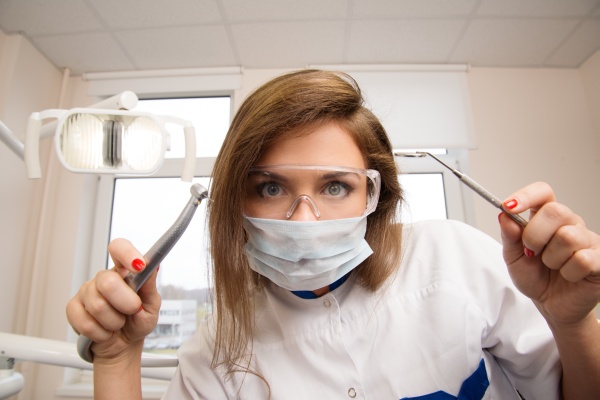Dental Anxiety vs. Dental Phobia

Dental anxiety is a serious concern in many people, and if not dealt with properly, it can develop into dental phobia, which is a different, more severe complication.
For anyone suffering from dental anxiety or dental phobia, it is essential to be well informed about why it exists and what can be done to treat it.
Dental Anxiety vs. Dental Phobia
Dental anxiety and dental phobia are different, but they have mostly the same causes.
The following is everything one needs to know about both dental anxiety and dental phobia, including what they both are, what causes them and how you can overcome these issues.
What is dental anxiety?
Dental anxiety is a condition in which a person has fear surrounding going to the dentist or receiving dental care at all. Some who suffer from dental anxiety may have real concerns centered around going to the dentist or may have had a bad experience in the past. That said, the majority of individuals who suffer from dental anxiety understand that the fear is irrational.
Fortunately, most with dental anxiety can overcome the condition, although they may be extremely hesitant to do so. Many with dental anxiety may only visit the dentist when it is necessary. Some others may see the dentist regularly but become extremely nervous and anxious about the visit.
What is dental phobia?
Dental phobia is very similar to dental anxiety in that it shows itself in the same manner. However, dental phobia is much more severe and can lead to one to not want to visit the dentist under any circumstance. Sufferers also tend to understand the fear is irrational.
The symptoms of dental anxiety may only consist of mild nervousness centered around a visit to the dentist, but one with dental phobia feel more drastic effects.
These include:
- Difficulty sleeping the night before a dental visit
- Unrealistic beliefs of what will occur while on the dental visit
- Sickness when forced with the task of visiting the dentist
- Irrational behavior while at the dentist
In many instances, therapy to deal with the phobia may be necessary to overcome the extreme form of anxiety.
Causes of dental anxiety and phobia
In many instances, the cause of dental anxiety and phobia are apparent, such as a bad experience or embarrassment.
However, there are some instances where the cause of dental anxiety and phobia may not be as noticeable. Here are several other common causes of dental anxiety and phobia:
- Fear of side effects from dental operations
- Fear of pain during dental operation
- Fear of an invasion of personal space
As can be seen, the main reason one suffers from dental anxiety has to do with both rational and irrational fear. Therefore, the best way to overcome dental anxiety and dental phobia is to treat and overcome the underlying fear. Once you remove this fear, you will be more willing to see a dentist and receive necessary treatments.
Are you considering dental anxiety treatment in the Carmel area? Get more dental anxiety information at https://www.carmelsmilesdentist.com.
Related Posts
Dental anxiety affects millions of people in the U.S. This anxiety can often prevent patients from getting treatments that can keep oral diseases like tooth decay and gum disease away or prevents them from getting worse. Dental phobias can be the result of previous bad experiences with dentists, or they can be caused by a…
If you have any dental anxiety over a checkup, we can work to accommodate your needs and handle the anxiety.People who have dental anxiety will avoid visiting the dentist and increase the risk of infection. We can accommodate your needs to help deal with dental anxiety and provide you the necessary treatment.Dental AnxietyAt Smiles in…
Thinking you need to find a sedation dentist so you will not miss any more of your dental appointments? According to the American Dental Association, the administration of local anesthesia, sedation and general anesthesia is an integral part of dental practice.When dentists are able to offer patients who experience any type of issues that prevents…
A sedation dentist can use different sedation techniques to relieve pain during a dental procedure.As a sedation dentist, we offer patients who struggle with anxiety at the dentist an alternative. Sedation methods can be short-term and will not have too long of an effect after the appointment is complete.Sedation DentistAt Smiles in the Village Dentistry…


